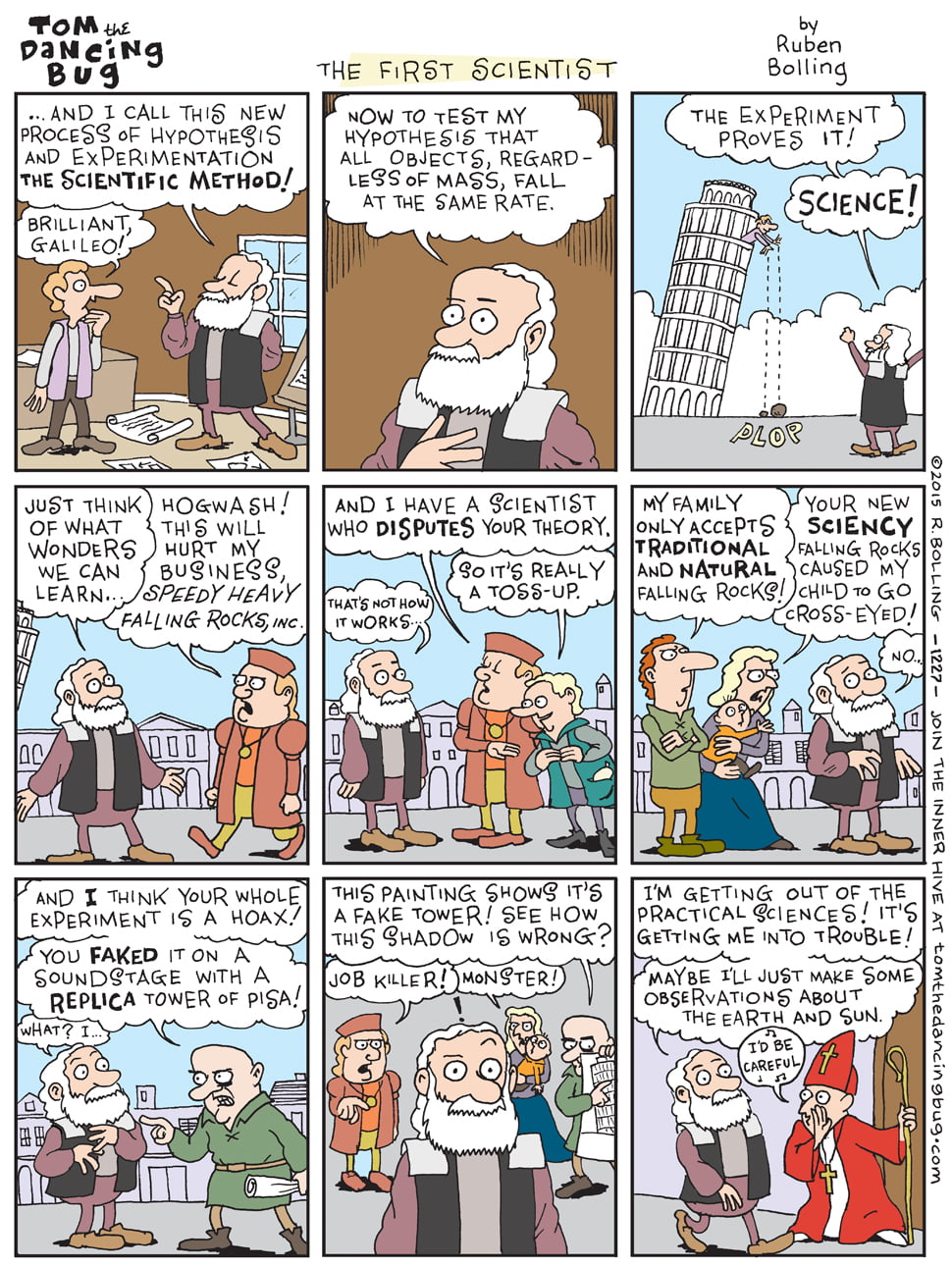Looking back on it, there was a time when the US was set on making science a priority in learning. Advancing our technology and teaching our children to strive toward excellence in math and science put us ahead in the Cold War and we desperately wanted to catch up with and surpass the advances made by other countries. The US made major progress – we even became the first nation on earth to land people on the moon!
By its nature, science is constantly growing and evolving (see what we did there?). We know more now than we did before – DNA, genes, the solar system, cancer research, etc.
So when did it become not only politically expedient, but popular to deny science? Science has long faced opposition from religious sources/forces, but more recently, it has been filtered most often through the lens of politics. Cases in point: we hear about climate change, evolution and vaccinations, and can immediately conjure up the last time we saw major opponents to their acceptance. These people are shown prominently in mainstream media, but more than that, are in charge of policy. Here’s where it becomes a problem.
According to the Encyclopedia Britannica science is:
…any system of knowledge that is concerned with the physical world and its phenomena and that entails unbiased observations and systematic experimentation. In general, a science involves a pursuit of knowledge covering general truths or the operations of fundamental laws.
The key word in that definition is “unbiased.” That means science should be an impartial resource that is equally relevant and accessible to those with myriad political opinions.
LCG has touched on this topic before, specifically with regard to news coverage of hot debate:
For us, it brings up the journalistic idea of balance wherein journalists try to get “both sides” of a news story. But what if there is no balance? Certainly, while part of the climate change story does include the fact that there are some people who deny that humans are helping to cause global warming, the deniers, by and large, are basing their claims on right wing political views, not real science. Should journalists feel compelled to include that in their stories? Currently, the jury’s out on this one, but we certainly don’t think so.
While it’s true that not everyone is a scientific genius, that does not excuse deliberate scientific illiteracy. We have professional scientists worldwide who have studied these issues extensively for decades and reached almost unanimous consensus. Not only that, some of the most important aspects have national and global consequences. Vaccination, for example, is vital to maintaining public health (as we recently saw with the measles outbreak); opinion does not counteract fact, and the ramifications of ignoring that truth can be catastrophic. Similarly, this applies to climate change. 97% of active climate researchers and the Academies of Science from 80 countries agree that humans are causiJng climate change. Of course, there should be room for political debate, but it should be over how to act, not whether to bother. For the record, it is possible to be a Republican climate scientist.
Many of us learned about scientific reasoning and methodology in school. Our society’s development owes so much to this field of study (think what would happen if we were still debating the morality of electricity instead of using it!). We are doing a disservice to ourselves and our country to turn our backs on science.
We remember past generations for their progress in this field; how will our descendants look back upon us; upon our actions and inactions? Can we really afford to make science a partisan issue?
The ever fabulous John Oliver illustrates our point.
